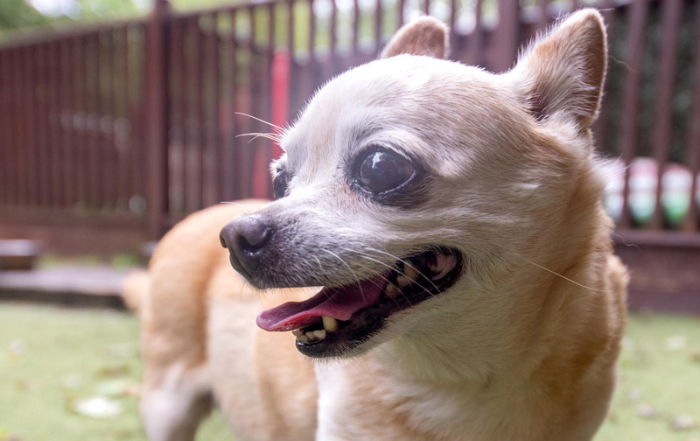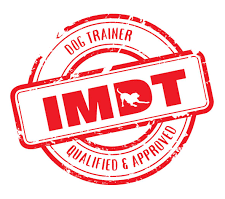Do you ever feel like your dog is playing a little game with you? Not the one you thought you were playing but very much to their own set of rules, and they aren’t about to share them with you! Training your dog can feel just like this. You work really hard at a skill, celebrate the successful displays of the required behaviour, reward your dog and then boom, your dog won’t repeat the same skill in a different situation.
On best behaviour, some of the time
One of the best examples of this is asking your dog to sit, stay and wait for their food, followed by the reward of the bowl that awaits. It is a great feeling to see your dog able to control their behaviour and wait patiently before feeding. Unfortunately, behind the scenes, your dog is learning that by simply staying in position for a few seconds, they will receive a bowl of food. Essentially, they learn that a minor behaviour request results in a major reward. What your dog considers a minor request and a suitable reward will become part of the behaviours they continue to display.
The root causes of selective obedience from your dog
There may be a number of reasons why your dog is willing to listen and cooperate in certain circumstances but not in others. The scenario above with the bowl of food can be a small example of a bigger problem where rewards are given for free. Each time a little treat is given just ‘because’, your dog learns that they will receive the things that they love without having to do anything other than just be close enough to catch it! Allowing children or strangers to hand a dog a treat with the aim of making your dog like them is more likely to teach them that strangers and children are a good source of treats and encourage them to approach them excitedly in the park. Your dog begins to learn that they will get what they want, no matter what they do, so they don’t seek guidance from you and instead they behave in whatever way comes naturally or seems the most fun to them.
For some dogs, the root cause for selective obedience may come from their early months. It is important to socialise a puppy so that they can learn how to behave appropriately around other dogs. However, a common pitfall that we find owners have fallen into with their dog was to encourage their puppy to play with every dog in the park. At the time, your puppy will love this and it is a lovely feeling to see the new member of the family playing happily, wagging their tail and getting on with other dogs. At the time, it may feel like an achievement to have helped your dog to avoid issues with other dogs later in life, such as anxiety or aggression. Fast forward and while your dog may still be happy to play with any dog that comes along, this is likely at the sacrifice of your dog learning not to run off. The park is a very exciting space to be and is a treat for a happy dog, no matter how well they are trained. However, there can easily be too much fun to be had with the opportunity to run off into open spaces without worrying where you are, chasing wildlife, interfering with games and picnics and bounding up to any dog they see, regardless of the signals that dog may be giving off about whether they want to play. Instead of your dog looking to you as their playful guide, wherever they are, they get immersed into the environment. Walking your dog can quickly become an unpredictable point of tension if you don’t know what they will do next and can’t rely on them listening to you when you need them to.
These causes are not signs of being a bad owner and we support anyone who is looking to use dog training to rectify problems like this, no matter how they started. We celebrate all work put in by owners to help to train their dogs and want to ensure they achieve the success they are after, even when there are distractions around.
The importance of play in dog training
Distraction is one of the keys to unlocking this problem. Your dog may be excellent at simple commands like ‘sit’ when you are in your home, garden or another familiar, comfortable space. However, when there is something new to think about, your dog’s concentration is elsewhere. When owners come to Royvon and explain to us that their dog ‘will sit’, ‘will wait by the door’, ‘will stay before food’, we note the use of the word ‘will’. All dogs have a will of their own, and therefore can choose when they ‘will not’ too. The same is true with ‘my dog knows how to’. As with humans, knowing how to do something and choosing to do it are two different things. If you are trying to make a change to your own lifestyle, you may know exactly what you need to do, but carrying it out is not as straightforward.
How environment plays a role in effective training
Distractions may be at their peak in a new environment. The home environment may be a stable and easy place for your dog to learn, especially if you are very focused on them and they know there are high rewards. However, even within that space, so much can change from your dog’s point of view. Excited children coming home from school, visitors, refurbishments, even the vacuum cleaner, can be very distracting for a dog! This calls to the playful nature of dogs and the excitement they enjoy when playing. The positive dog training methods we teach at Royvon use this to your advantage, utilising play as a training tool and teaching your dog that you are very much worth watching.
Context is central to understanding why your dog doesn’t repeat the same behaviour wherever they are. At Royvon, we use a variety of environments throughout training, making sure new, desired behaviours are bedded in wherever your dog is. By taking your dog into local parks, woods, golf courses, streets and urban areas, your dog learns that the behaviour expected is consistent. These environments are very exciting but if your dog doesn’t know how to behave in them, they may feel anxious or over-stimulated, resulting in undesirable behaviour that sadly results with more time on the lead and less chance to explore their new surroundings.
Finding the right motivating reward for your dog
So how can you get your dog to react in the same way, regardless of the context? Or to translate their great ability to sit and wait for food into sitting and waiting when the car door is opened or when they see a ball game at the park? The secret to unlocking this ability is to teach your dog that everything comes from you. You have plentiful rewards to offer, as long as your directions are followed, wherever you are. We work with owners to teach you how to play this important role for your dog.
In order for a reward to be compelling enough, it must motivate your dog. Dogs have different personalities and may react to treats, toys and praise in a different way to other dogs. Seeing someone else give their dog a small treat in the park when they recall effectively does not necessarily mean that your dog will come running for the same treat, at least not more than once as they learn what the reward you have for them looks like! At Royvon, we help you to find out what works to motivate your dog and then how to use this to encourage more of the behaviours you want and less of what you don’t want your dog to do.
How Royvon can help your dog to listen consistently
Working together with you and your dog, we help to establish a relationship where your dog seeks guidance from you. We offer a range of programmes all the way from an online session before a puppy arrives through to residential training for older dogs that could benefit from more focused training time. It’s never too late to help your dog to learn what is expected of them and how they can unlock abundant rewards through the right behaviours.





Leave A Comment